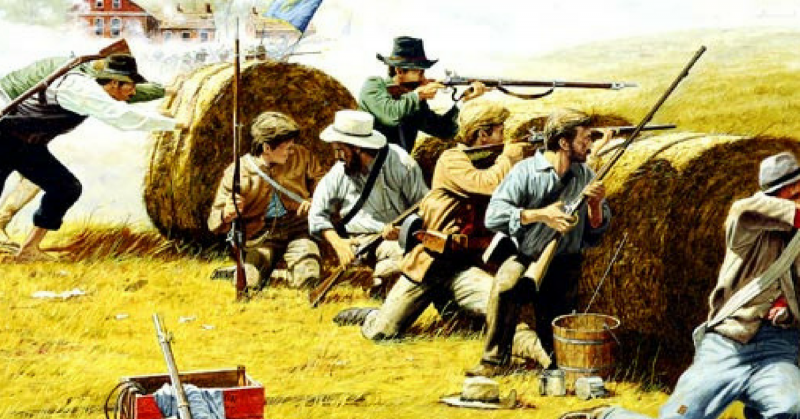The Missouri State Guard (MSG) had just been put together some months prior to the Lexington battle that shook the small town of Lexington for eight days.
With one-third of its populace being slaves, many of the slave owners in Lexington sided with the Confederates for want of their slave ownership rights placing them in direct conflict with the Union.
After his appointment as Major General of the Missouri State Guard, the former Missouri governor, Sterling Price aka “old pap” was at the helm of affairs in the Confederates’ plot to secure Missouri as its twelfth state and drive off the dominant Union forces present.
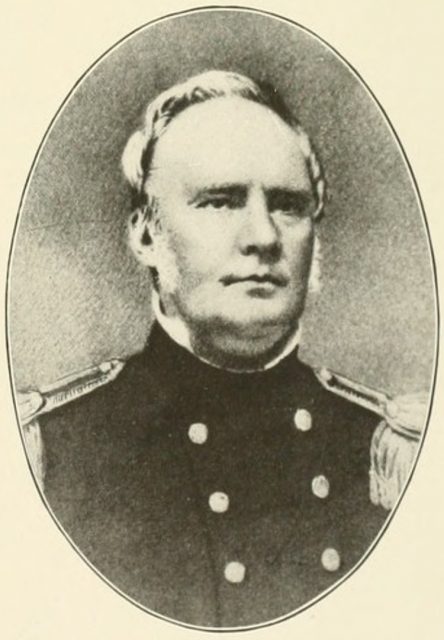
The son of a wealthy farm owner and the owner of a successful farming establishment himself, Price was always favored to be a Confederate soldier.
However long the state had tried to stay neutral during the civil war, Missouri was now in a state of constant struggle between both parties and with its agricultural prominence in the Trans-Mississippi Theatre, it was imperative that the Confederate forces took and held the state as it would greatly aid their cause.
Price led the assault with an army of 15,000 men against Colonel James A. Mulligan and his Union force of 3,500 men on 12th September 1861 in a bid to overpower the Union defenses there and extend Confederate hold over the state.
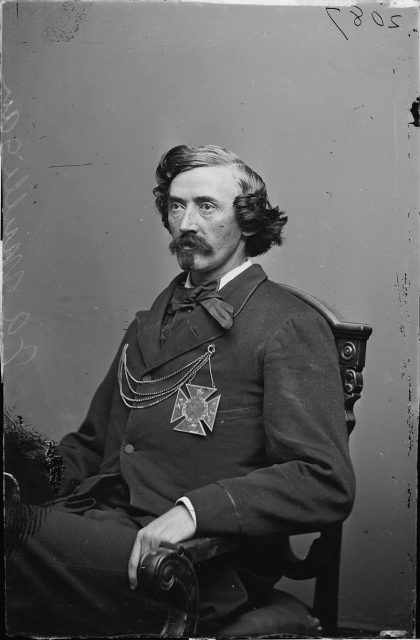
He fancied his chances of continuing his victorious streak after his successful assault with the Confederate commander, Brigadier General Benjamin McCulloch at the Battle of Wilson’s creek.
It was nothing short of a precarious situation for Mulligan and his 3,500 Union troops who stayed within their earthen fortifications, trapped and surrounded by the MSG whose numbers were completely outrageous when compared with the Union Army present within the earthen works.
Skirmishing took place on the morning of September 12th at a Union outpost that was located behind shocks of hemp on an elevated landscape. Price’s cavalry advance was engaged by the two Federal parties posted there.
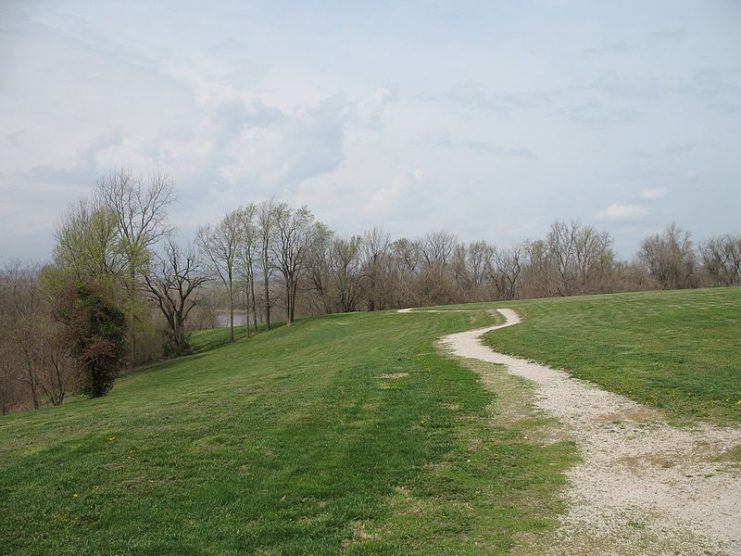
Later in the day, the MSG ran into some union troops and some firefighting ensued at the Machpelah Cemetery with no other form of cover in the plain grassland, tombstones in the cemetery served as shields against the open gunfire.
The Federals that engaged Price’s army were dispatched to slow down the enemy’s march to the Union positions as they were hurriedly trying to complete the set up of their defenses.
However, with the arrival of the artillery, the MSG successfully drove back the party who took off on their heels when their small arms were met with big guns.
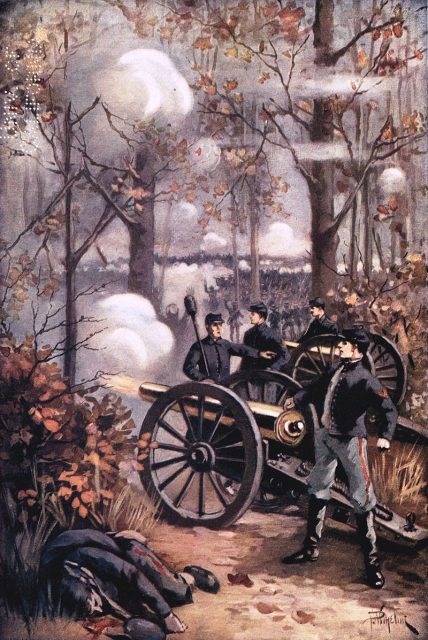
The MSG marched towards the Union position and surrounded the area, they initiated a two-hour artillery duel which left the State Guard’s ammunition in a depleted state.
Noticing the futility of further assault on the fort that day, Price withdrew his forces to the south at the fairgrounds of the Lafayette County, looking to attain further supplies, ammunition, and reinforcements for a much bigger assault.
By 18 September, Price’s army was at full strength with 18,000 troops in the State Guard and a fresh supply of ammunition. “Old Pap” decided that he couldn’t wait any longer.
He devised a strategy to capture the Anderson House which was located a small distance from the Union’s position while carrying out a heavy artillery bombardment of Mulligan’s fortifications from the top of College Hill from 9 AM till 6 PM that evening. The house was a three-story brick building which served as a hospital and was illustrated as such by the Federals.
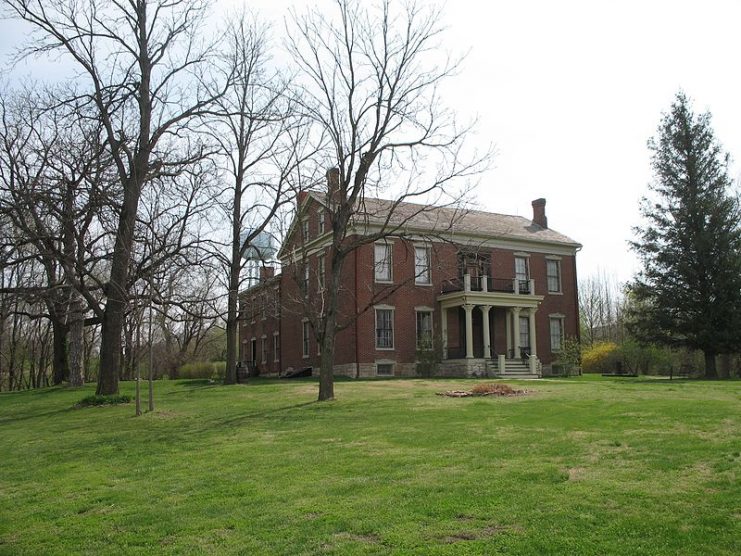
As a result of its proximity to the Federals’ position, taking the house would provide a good vantage position of fire for the State Guard soldiers from the top floor.
With little or no military defense stationed at the hospital, the State Guard party dispatched there by Brigadier General Harris took the building successfully. When Mulligan learned of this development, he was enraged and accused Price of being a war criminal by choosing to attack a hospital.
A couple of Union soldiers were fired upon while in their trenches by the State Guard troops situated at the top floor of the house, much to the bewilderment of the Union commander and the Federal troops.
Mulligan thereafter sought to regain control of the hospital which he did, but only momentarily. Dispatching two companies from his regiment, they proceeded to the building to dislodge the enemy soldiers present there.
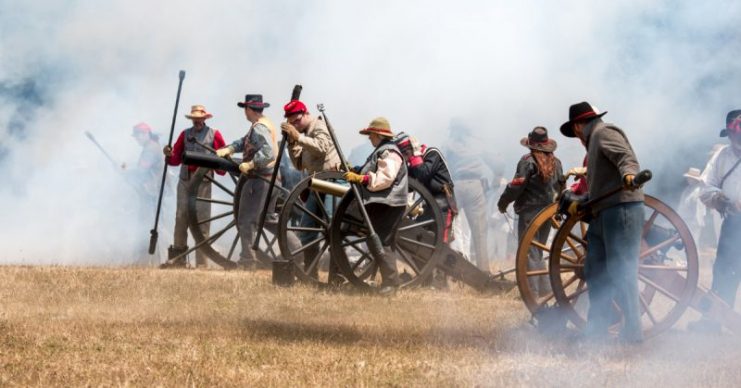
The Federals came under such heavy fire that within a matter of minutes they had sustained significant casualties yet only managing to clear the lower floor. The Union soldiers taking into account the losses incurred in clearing the first floor were reluctant to proceed upstairs.
Sheer bravery and courage emerged from within their midst when a bugler, George Henry Palmer stepped up to lead the soldiers up into a danger zone. He encouraged them to follow his lead and climbing up the stairs he ordered the MSG soldiers to surrender their weapons which they did.
The MSG, however, reclaimed the house later that day using their large numbers to their advantage and launching a second siege, they sent the Federals packing for good.
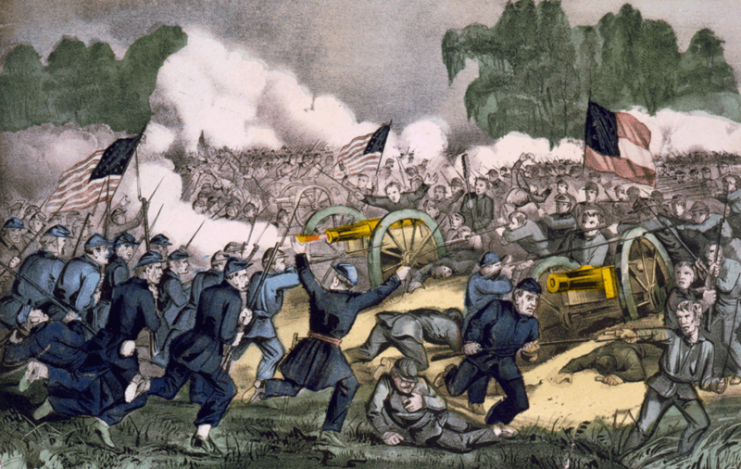
The day only seemed to get worse for the Federals as their only source of water supply was cut off by a team of State Guard troops dispatched by Colonel Ben Rives. The lack of this essential substance contributed to the Union Army’s uncomfortable situation even more.
They struggled to generate new water sources by digging wells all to no avail as they were all dry. The frustrated Federals were then subjected to further pressure on the eve of 19th September when General Harris came up with the brilliant idea to soak bales of hemp in water and use them as shields during a charge.
The hemp bales were bulletproof against everything that was thrown at them and pretty soon, other divisions of the MSG were surging forward with hemp bales toward unfriendly territory.
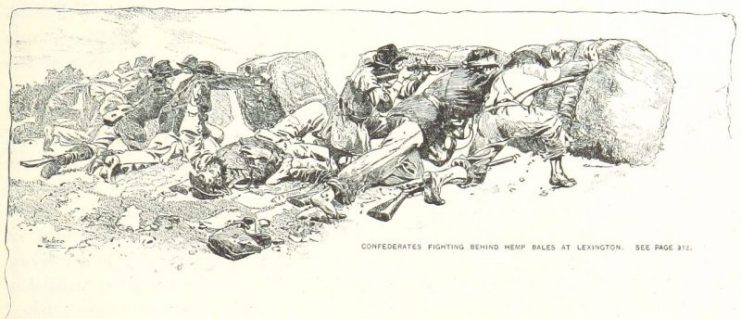
By nightfall, the Union fortifications were surrounded on all sides by MSG troops and all hope seemed to be lost. The next morning, State Guard troops attempted to raid the Federal trenches but were repulsed, they were still deliberating on the next course of action when a white flag was raised by Major Frederick Becker much to the amazement of Mulligan.
Still not in support of surrender, Mulligan called for a vote in an emergency council of war to which he lost. Still bitter from the battle’s outcome, he had no choice but to agree to terms of an unconditional surrender. The battle was lost!
After the civil war, George Henry Palmer was given the Medal of Honor for the part he played while fighting for the Union in Lexington.
